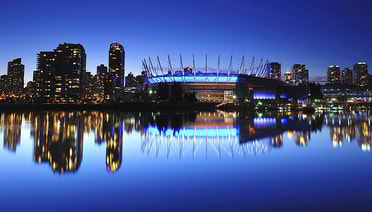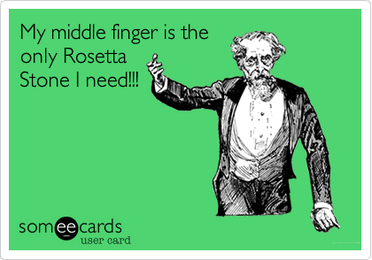|
Like many Vancouverites, I was born and raised on a different continent. I am asked, almost daily, why I choose to live here out of all the cities in the world - especially since I seem to have visited a heck of a lot of them. This post is a great excuse to reveal my personal discoveries behind Canada’s third largest, and easily most fetching, city. The first thing that hits you is the air. It tastes pure. It smells like a glacier. It’s like toothpaste for your lungs. With all the pollution and traffic found in any major city (and the yellow fog that settles over the Fraser Valley is no exception), Vancouverites still get that wonderful fresh onshore breeze, and crisp mountain air. One day they might bottle it, along with our water, which is cleaner and tastier than bottled brands anyway. A lifestyle city means, simply: one doesn't have to earn as much to do as much. By doing, I refer to the beaches in summer, the mountains in winter, and the sea and parks across all seasons. Meanwhile, Vancouver gets a lot of slack for its lack of culture, and yet every week there’s theatre and live music and exhibitions and galleries and festivals and all the things those people who complain about “lack of culture” don’t go see anyway. Yet culture, as anyone who lives in New York can testify, costs a great deal of money. A walk on Stanley Park’s seawall, in the expansive UBC Endowment Lands, on the mountain trails of the North Shore or the paths along the Fraser River, is free of charge. Whatever your age, whatever your budget, with a pair of walking shoes and a love of nature, there’s always something to do. It’s not just the mere diversity of restaurants in Vancouver - where neighbourhood streets can resemble the world’s best Food Court - it’s the overall quality and affordability that makes dining in Vancouver world-class. The offers the world’s best sushi, period. Indian, Thai, Malaysian, Mexican, Turkish, Greek, Italian, Ethiopian, Jamaican, Korean, African, and of course Chinese cuisines are well represented, across budget ranges. West Coast fusion, fine dining - hipsters, yuppies, students and vegetarians are in foodie heaven. My favourite restaurant: Jambo Grill on Kingsway. It might be mid-January, and I’ll be out with friends wearing a thin hoodie on a wet winter night. Some people prefer the freeze to rain. Some people live in the desert. We’re a wet city, but we’re not a cold city, certainly when compared to the rest of Canada. I like not wearing too many layers. I like feeling my nose, and not worrying about my eyes freezing over. I like taking a walk in a forest when it rains, like a Hobbit on a quest for adventure. Constant drizzle occasionally gets annoying, but it comes with warmer temperatures that locals very much appreciate. Our seasons are clearly defined with the passage of time, our sunsets mesmerizing. Vancouverites themselves are like their weather: famously mild. Neither hot headed nor cool tempered, we seem to be very busy, although hardly in a rush. We won’t stop you in the street and ask you for tea, but maybe that’s because it’s raining and nobody wants to get wet. There’s a certain amount of reliability that comes with Vancouverites – their outrage at scandal, their upbeat humour on a sunny day, their time-bomb potential to riot if a rock concert is cancelled (or we lose Game 7 of a Stanley Cup Finals). This is a city that is called both No Fun City and Vansterdam, stuck in its Victorian ways yet wildly progressive. With these extremes, no wonder the city's temperament sits firmly in the middle. I love the views. I love the way the sports teams almost seem to finally make it big before imploding in one way or another. I love the way people who visit me from out of town react when they experience Stanley Park's Seawall for the first time. I love the way everyone seems to come from somewhere else, and yet calls this city home. Come on in, and make yourself at home too.
0 Comments
Many people are amazed to discover that I am fluent in just two languages. English, and the one that gets me through just about any situation: bullshit. Granted, I have become proficient in charade-ish, able to use my appendages, tongue, eyes, and head to convey phrases like “I am looking for the bathroom” and also “Are you sure this bus can withstand a head-on collision with that truck?” I have also had fine conversations in drunkanese, the universal language of long slurs and emotional expressions that ends in tears or violence. Speaking only English has not deterred me from my travels, and should not prohibit you from yours. Yet I recall travelling in Europe with a multilingual French guy, and how richer his experience appeared to be. Spanish, French, English, Italian, Portuguese – Philippe sparked up friendships while I was often reduced to awkward silences. We were both steamrolling through Europe, but his steamroller had an accelerator. I was travelling in Brazil with a friend, and over dinner in a Rio pizzeria, a beautiful young girl sitting opposite us handed him a note on her way out. The waiter translated it: something about giving her a call because he could be the love of her life. My very single friend naturally responded to the invitation, called her up, and drove into a brick wall. She could not speak a word of English, and it would have been all Greek to him, except she spoke Portuguese. The waiter helped with some translation, but his English wasn’t too great either, and so the stunning potential soul mate eventually hung up on him in frustration. At the airport on the way home, I noticed a store selling a language learning software called Rosetta Stone. If I ever hoped to avoid my friend’s fate, perhaps it was time to learn a new language. I’m not passing up the love of my life simply because I can’t say “lets have coffee tomorrow at 8pm?” A few weeks later, Brazilian Portuguese Levels 1, 2 and 3 arrived in a bright yellow box, promising a whole new world. “He was a farm boy, she was an Italian supermodel…” reads a magazine advertisement for Rosetta Stone, a company that offers easy to use, computer-based language courses in over two dozen languages. Named after the famous archaeological discovery that enabled historians to first translate Egyptian hieroglyphics, its technique is simple: using images, text, and sound, it immerses the student into a new language with no translation, creating a wholly visual world to mimic the way a child discovers a native tongue. Level 1 is broken down into various sections, such as Language Basics, Greetings and Introductions, Work and School, and Shopping. Each 30 minute Core Lesson is then broken down into 5 and 10-minute tutorials that take you through the lesson in more detail, emphasizing vocabulary, writing, listening and grammar. For the busy worker bee, the time-conscious nature of the program makes it easy to schedule, and initially, becomes quite addictive. A photo of a woman appears. A voice says: mulher. I repeat the word, see how it is spelled, and get rewarded with the green tick and sound of success. If I get it wrong, I get an X and the sound of a boo-boo. Should I make enough boo-boos, the software advises me to repeat the section. Gradually proceeding through the levels, it gets more difficult, as phrases and sentences take form. According to the box, the student will learn naturally, engage interactively, speak confidently, and have fun. Three months later, fate sent me a lovely Brazilian girlfriend, but I still couldn’t string a correctly pronounced sentence of Portuguese together. While Rosetta Stone is a successful, publicly traded company, with high profile clients like the US military and affording a spokesman in Olympic superstar Michael Phelps, it has also been the target of much criticism online. Not surprisingly, its harshest critics appear to be traditional language schools. Yet there are also blog posts from users who have complained that using the system is too slow, too expensive, lacking in useful phrases, and insensitive to local customs. Indeed, the same photos and learning formula is used across all the languages on offer, a universality that has its limitations in practical use. After three months of using Rosetta Stone almost daily, I could understand some words, but stammered trying to put together a cohesive phrase. It doesn’t help that Brazilians crack up at my pronunciation, or my old-fashioned terms and tone. That being said, I like the game-play quality of the software, its portability and interactivity, and well, I’m probably a very slow learner. But I can tell the bom (good) from the ruim (bad), and best of all, my girlfriend appreciated my continuing effort. So much so that she agreed to marry me a few years later. When it comes to learning a language, things click together faster when you’re in the actual country, immersing yourself in the language, people and culture. Whether you study in an intensive language school, buy a tutorial book, order a copy of Rosetta Stone, or use combination of the above (which seems to be the going advice from language students online), whatever system keeps you enthusiastic about learning that new language, is ultimately the one that works. In the meantime, I’ll keep hacking away in drunkanese.
|
Greetings.
Please come in. Mahalo for removing your shoes. After many years running a behemoth of a blog called Modern Gonzo, I've decided to a: publish a book or eight, and b: make my stories more digestible, relevant, and deserving of your battered attention. Here you will find some of my adventures to over 100 countries, travel tips and advice, rantings, ravings, commentary, observations and ongoing adventures. Previously...
July 2024
Categories
All
|



 RSS Feed
RSS Feed

